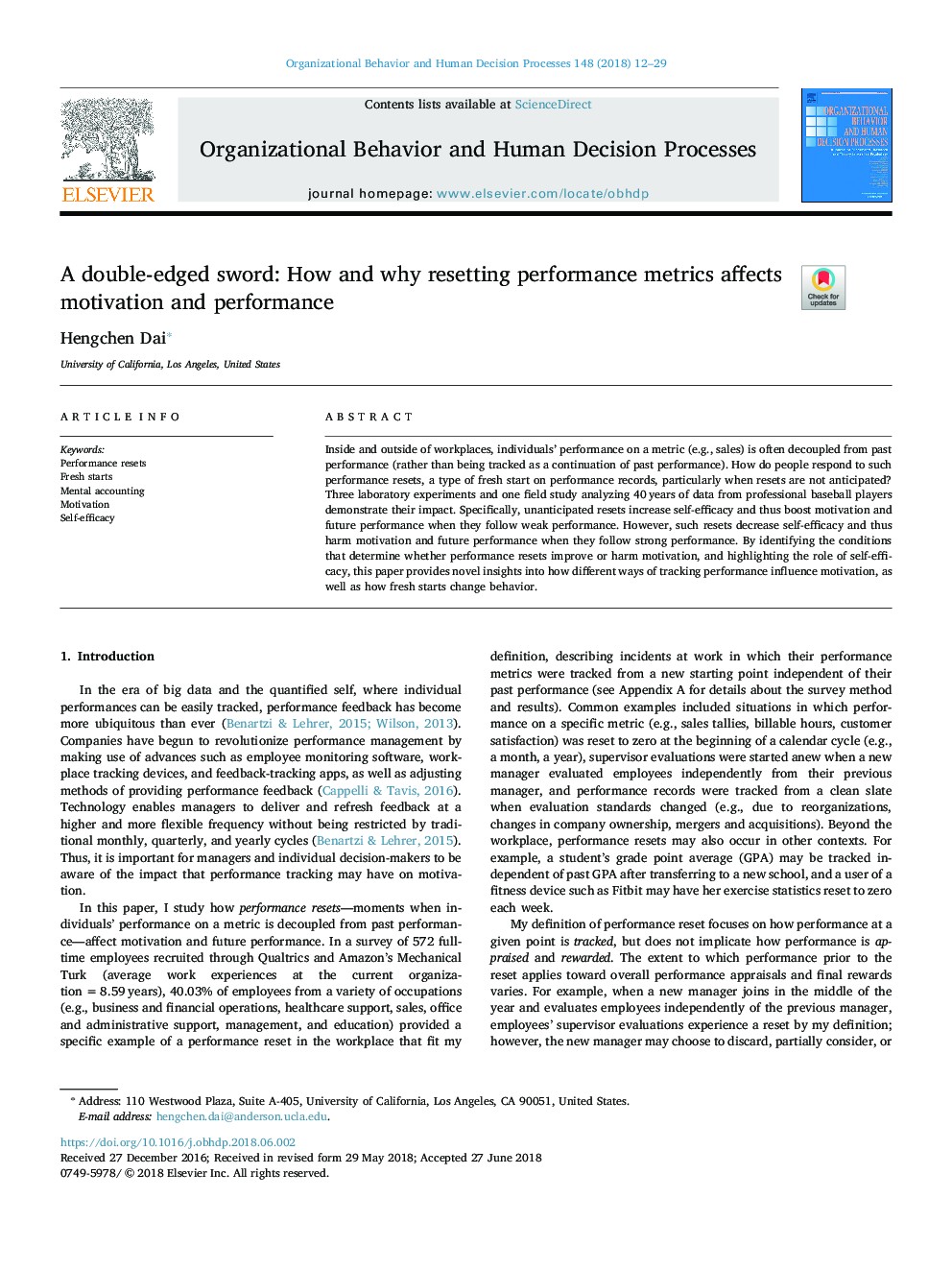| Article ID | Journal | Published Year | Pages | File Type |
|---|---|---|---|---|
| 7247926 | Organizational Behavior and Human Decision Processes | 2018 | 18 Pages |
Abstract
Inside and outside of workplaces, individuals' performance on a metric (e.g., sales) is often decoupled from past performance (rather than being tracked as a continuation of past performance). How do people respond to such performance resets, a type of fresh start on performance records, particularly when resets are not anticipated? Three laboratory experiments and one field study analyzing 40â¯years of data from professional baseball players demonstrate their impact. Specifically, unanticipated resets increase self-efficacy and thus boost motivation and future performance when they follow weak performance. However, such resets decrease self-efficacy and thus harm motivation and future performance when they follow strong performance. By identifying the conditions that determine whether performance resets improve or harm motivation, and highlighting the role of self-efficacy, this paper provides novel insights into how different ways of tracking performance influence motivation, as well as how fresh starts change behavior.
Related Topics
Social Sciences and Humanities
Business, Management and Accounting
Marketing
Authors
Hengchen Dai,
